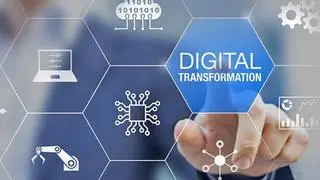Tamil Nadu aims to emerge as an attractive manufacturing centre for automotive electronics, defence and aerospace, going forward, a top State government official said on Wednesday.
With the right ecosystem in place, the Tamil Nadu government is all set to attract investments in the emerging areas of automotive and allied sectors.
“There is going to be more and more proportion of electronics in vehicles, with the emergence of new norms and electric mobility. Given the State’s strengths in auto, IT and electronics, Tamil Nadu can become an important manufacturing hub for automotive electronics,” N Muruganandam, Principal Secretary-Industries, Government of Tamil Nadu, said during the virtual Auto Conclave 2020, organised by FICCI.
He felt that it would be a logical extension for automotive and component companies in the State to look at opportunities in the defence and aerospace sectors. While the State has come out with a policy to attract investments in defence and aerospace, Tamil Nadu is also housing one of the two defence corridors planned by the Union government. “Overall, the future of the auto sector is bright and Tamil Nadu will continue to grow in this space,” he added.
Muruganandam highlighted the State’s plan to attract investments and create jobs in the electric mobility space, supported by a favourable policy launched last year.
EV start-ups should be encouraged in the State and there would be an opportunity to work with the UK companies in the electric mobility space, he said.
Paul J Dryden, Deputy Head of Mission, British Deputy High Commission, highlighted that UK’s auto industry, which is estimated at £82 billion , was leading in development and manufacture of EV battery technology and light battery parts as well as carbon fibre composite components. The UK government and the auto industry have been pumping more money into R & D and emerging technologies in the past two years.
He further said there is potential for Indo-UK collaboration in the areas of electric mobility, decarbonisation, skill development, among others.
Various industry representatives discussed future mobility in a session, moderated by the Raghavan Srinivasan, Editor, The Hindu BusinessLine .
The representatives highlighted the challenges in adoption of EVs, emerging trends in battery segment and infrastructure and the impact of EV on auto parts segment.
BC Datta, Vice-President- Corporate Affairs of Hyundai Motor India Limited, pointed out that amid current challenges in adoption, the future would be electric vehicles and hydrogen fuels. Everybody – be it companies like Hyundai or governments – is moving in that direction. With the improvement of charging infrastructure, electric cars will also gain traction, he added.







Comments
Comments have to be in English, and in full sentences. They cannot be abusive or personal. Please abide by our community guidelines for posting your comments.
We have migrated to a new commenting platform. If you are already a registered user of TheHindu Businessline and logged in, you may continue to engage with our articles. If you do not have an account please register and login to post comments. Users can access their older comments by logging into their accounts on Vuukle.